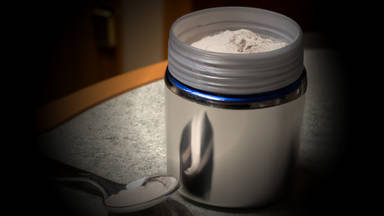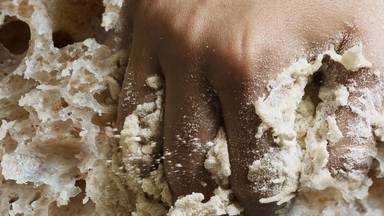
Since the beginning of the “modern era,” marked by increased urbanization, there has been a significant increase in the attention paid to cleanliness.
Infection disease in developed countries decreased dramatically. And as time goes on, more areas in the world have access to safe drinking water and maintain good standard hygiene. But data also show an increasing incidence of autoimmune diseases such as type 1 diabetes, diabetes mellitus, multiple sclerosis (MS), and allergy in developed countries.
Although genetic and other triggering mechanisms also play a role in those diseases, the rising incidence of allergy and autoimmune disease seems to have a link to decreasing the infection among these countries.
In this article, we’ll look at the link between autoimmune disease and progressive attention to hygiene after the coronavirus pandemic in particular.
What is an immune disease?
The immune disease is an abnormally low or excessive immune system activity. Overactive immune systems cause the body to attack and harm its tissues. In other words, affected people’s immune system attacks their body instead of protecting them.
The overactive immune system reduces the body’s ability to fight against intruders, making it more susceptible to infection and disease.
Autoimmune diseases include a variety of conditions, including: Crohn’s disease, Ulcerative colitis, Lupus, Rheumatoid arthritis, Hashimoto’s autoimmune thyroiditis, and Pernicious anemia/atrophic gastritis.
Around 78 percent of people who are affected are women, even though men are also susceptible to immune diseases. Autoimmune diseases are one of the most common causes of death in women of all ages.
Auto-immune disease symptoms
Autoimmune disease can affect many organs in the body. The symptoms can include fatigue, rashes on the skin, migraines, dizziness, upset stomach, and more.
Symptoms and the family history of autoimmune disease, as well as blood tests, can help a doctor diagnose an autoimmune disease. The blood tests that can be used to detect autoimmune disease include: Analysis of antinuclear antibodies (ANA), Receive a complete blood count (CBC), and The rate of erythrocyte sedimentation (ESR).
Scientists are still trying to figure out why autoimmune diseases occur, but so far we know that some of the factors which can cause or contribute to the development of autoimmune disorders are: smoking, genetics, obesity, infection, inflammation, some medications including antibiotics and statins, and medication to control blood pressure. Furthermore, some research indicates that autoimmune diseases can be triggered by a leaky gut or intestinal permeability. (10)
The intestines serve as a first line of defense against a wide range of exterior antigens. Increased intestinal permeability may lead to several diseases triggering or becoming worse, including autoimmune diseases such as inflammatory bowel disease. A leaky gut condition can be caused by numerous factors, including alcohol consumption and use of antibiotics.
Hygiene hypothesis
Based on the hygiene hypothesis, exposure to germs and infections strengthens the immune system in children. In other words, the immune system learns not to overreact as a result of exposure to some germs. (2) In people with autoimmune diseases, the defense system becomes so inadequate that it leads to developing asthma and emerging other autoimmune diseases.
Although more research needs to be done on the hygiene hypothesis, there is much evidence to suggest our immune system is influenced by our environment, as well as our genes.
Atopy is an hypersensitivity disorder in which chronic inflammatory disease of the skin leads affected individuals to suffer from itching and skin infection(4). Certain studies have shown that being around farms and cow shades increases the resistance against asthma, hay fever and atopic sensitization in children. Especially if the mother is exposed during pregnancy.
Furthermore, Scientists believe antibiotic use throughout childhood raises the risk of allergy, autoimmune, and metabolic disorders later in life.
The link between autoimmune diseases and over-hygiene
Scientists have shown that over time, as people have followed a higher sanitary lifestyle, some autoimmune disorders - inflammatory bowel disease, asthma, hay fever, and other allergies - have become more prevalent. In fact, pasteurization, sterilization of food products such as milk, wide use of antibiotics, and decontamination of water supply seems to increase the risk of immune disease.
Moreover, those diseases are far more widespread in developed countries than in undeveloped countries. In countries that don’t have good health standards, more people get infected with pathogens. In contrast, in developed countries, where people maintain high levels of health, even though infection diseases have declined, an increase in autoimmune and allergic diseases has been observed.
David Strachan, a British epidemiologist who examined childhood allergies in West and East Germany in the late 1980s, noticed a link between the two. He discovered that children living in East Germany’s dirtier, more polluted, and poorer cities had far fewer problems with asthma and hay fever than children living in wealthier, cleaner areas in West Germany.
Covid19 pandemic consequence on our microbiome
In 2019, a novel human coronavirus (SARS-CoV-2) caused an epidemic all over the world. In addition to being associated with SARS and MERS, COVID-19 also has some unique pathogenetic, epidemiological, and clinical characteristics that are still unknown. During the coronavirus pandemic, private and public life in the world were restricted. The pandemic has had long-lasting effects on the human microbiome.(6) The loss of microbiome diversity, caused by extreme hygiene, physical separation, and travel bans, can lead to obesity, asthma, cardiovascular disease, diabetes, and autoimmune diseases. (7,8) Moreover, microbial loss leads to inflammation. And inflammation is the root of many autoimmune diseases.
The treatment of immune diseases
People with autoimmune diseases can live healthy lives. The aim of the treatment is to reduce immune system activity. Doctors may provide medications or suggest other treatments to help individuals manage their symptoms. You can also use the following methods to alleviate your symptoms.
Try not to be too clean
Even though some bacteria can be harmful to humans, there are some that are incredibly beneficial. The human body has more than 10 to the power of 14 (100,000,000,000,000) bacteria of more than 1000 different species. (1) These bacteria are really important to our immune system. They help us digest food and produce vitamins in our intestines. They also cover our skin to protect us from harmful germs.
Outside of human bodies, they digest organic waste, produce half of the world’s oxygen, and regulate nitrogen levels in the atmosphere, all of which contribute to the Earth’s status as a life-supporting planet.
Many scientists argue that society has grown “too clean” today. It is fine to use sterilizers or to wash with regular soap after being admitted to the hospital, but anti-bacterial and sterilizing soaps are not necessary after daily jogging sessions.
Probiotics effect on autoimmune disorders
Probiotics help your body build and restore good gut bacteria by bringing good live bacteria and yeasts into your system. Bacterial health advantages have been identified throughout history. Fermented milk was consumed in the Middle East as early as 10,000 BC, followed by Egypt, Greece, and Italy. Tibetan nomads remained healthy, despite the lack of fruits and vegetables in their diet, thanks in part to fermented yak milk and its derivatives.
There are several studies showing gut microbial modifications by probiotics improve symptoms of some autoimmune and inflammatory disorders such as ulcerative colitis, multiple sclerosis, and rheumatoid arthritis. (12)
Diet can heal autoimmune diseases
In general, changes in diet have a positive effect on most autoimmune diseases, such as celiac disease, Crohn’s, Hashimoto’s, and rheumatoid arthritis. The popular Mediterranean diet has received excellent ratings in research for its anti-inflammatory properties and diverse food options. Even though vegetarian and vegan diets are more restrictive, research has shown that they have anti-inflammatory properties.
The AIP, or AutoImmune Protocol diet, is another restricted diet plan you may have heard of. It’s based on the premise that certain foods inflame your stomach, and that removing them from your diet will help you feel better. In the following, we will introduce different diets that have shown to be effective in autoimmune diseases.
The anti inflammatory diet
The anti-inflammatory diet is an excellent strategy to reduce inflammation and, as a result, treat most autoimmune disorders in those who are affected. Some foods that have anti-inflammatory properties include mushrooms, grapes, turmeric, extra virgin olive oil, dark chocolate, tomatoes, cherries, berries, fatty fish, broccoli, avocados, green tea, and peppers. Of course, people with the autoimmune disease better avoid inflammatory foods including: Processed foods like fast foods, Trans fats, Fried foods, Processed meats like sausages, hot dogs, Refined carbs like white bread, biscuits, white rice, and Sugary drinks like sodas.
Dairy may cause issues for some people. They should cut back on dairy consumption. Dairy intolerance can take several forms. Some people are lactose intolerant, while others are allergic to dairy protein or sugar. They will have symptoms like bloating, skin rash, drippy nose, congestion fatigue, abdominal pain, and diarrhea a while after taking dairy.
The autoimmune protocol diet (AIP)
An experiment has shown that eliminating certain foods for a limited period of time reduces intestinal permeability and alleviates autoimmune disease. Researchers observed clinical remission in 73 percent of patients after six weeks of dietary changes. The diet focused on the elimination of some foods that have antigen agents such as grains, legumes, nightshades, coffee, food additives, alcohol, nuts, refined/processed sugar, vegetable oils, and nonsteroidal anti-inflammatory drugs for 6 weeks followed by 5 weeks reintroduction phase. As well as replacing those inflammatory foods with other healthier foods. (11)
You can eat the following foods on the AIP diet:
- Veggies (with the exception of nightshade vegetables)
- Sweet potatoes are a type of potato that is used
- Meat and fish (ideally grass-fed)
- Fruit one to two serving
- Coconut milk
- Bones broth
- Avocado, olive, and coconut oils.
- Dairy-free Fermented foods (such as kombucha, sauerkraut, kefir made with coconut milk, or kimchi)
- Gelatin from grass-fed animals and arrowroot starch
- In tiny amounts, honey or maple syrup
- Non-seed herbs, fresh (such as basil, mint, or oregano)
- Green tea and herbal drinks without seeds-Vinegars
The AIP diet forbids you from eating:
- All types of grains (including oats, wheat, and rice)
- Eggs
- Dairy products
- Food additives or processed foods
- Seeds and nuts
- Beans and legumes
- Chocolate
- Herbs derived from seeds
- Butter and ghee
- All oils other than coconut oil, olive oil, and avocado oil)
- Vegetables from the nightshade family (tomatoes, potatoes, eggplant, peppers)
- All sugars, including sugar substitutes like stevia and xylitol
- Alcohol
Exercise can help with autoimmune disease
Maintaining physical activity increases physical energy and stimulates the secretion of endorphins, a natural anti-inflammatory medication. And as said before, decreasing inflammation vastly benefits the body against autoimmune diseases.
In recent years, the introduction of biologic medicines has improved outcomes in the management of autoimmune diseases. Recent research emphasizes the important role of modifiable habits like physical inactivity in many components of the immune system and autoimmune disorders. Physical exercise causes an increase in T-regulatory cells, a decrease in immunoglobulin secretion, and a change in the Th1/Th2 balance, resulting in less Th1 cell production that leads to ease of autoimmune disorder symptoms.
Anxiety and negativity are pro-inflammatory, whereas optimism is anti-inflammatory. You can make your workout more enjoyable by choosing an activity that is interesting and pleasurable. You will gain more health benefits by making your workout more enjoyable. For the same reason, a group class or social atmosphere may be beneficial.
Nonetheless, it is vital that you listen to your body. While exercise has significant anti-inflammatory properties, excessive exercise can exacerbate inflammation and lead to an autoimmune flare. If you are a beginner, you should start by doing light exercises. As you become more accustomed to them, you can do more strength exercises.
Footnotes
1. https://www.ncbi.nlm.nih.gov/pmc/articles/PMC3027896/
2. https://www.ncbi.nlm.nih.gov/pmc/articles/PMC2841828/
3. https://www.ncbi.nlm.nih.gov/pmc/articles/PMC4918254/
4. https://pubmed.ncbi.nlm.nih.gov/11597666/
5. https://www.ncbi.nlm.nih.gov/pmc/articles/PMC6213508/
6. https://www.ncbi.nlm.nih.gov/pmc/articles/PMC8017729/
7. https://pubmed.ncbi.nlm.nih.gov/31949069/
8. https://pubmed.ncbi.nlm.nih.gov/28709450/
9. https://www.ncbi.nlm.nih.gov/pmc/articles/PMC4918254/
10. https://www.ncbi.nlm.nih.gov/pmc/articles/PMC5440529/
11. https://www.ncbi.nlm.nih.gov/pmc/articles/PMC7147823/
12. https://www.ncbi.nlm.nih.gov/pmc/articles/PMC6213508/









